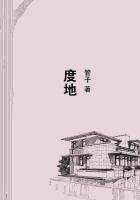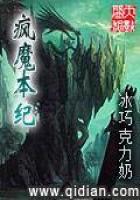AFTERMATH
Stanislaus lacked six or eight weeks of being eighteen years old when he died. He had not been a preacher or writer or engaged in any public work. Only a handful of people in Rome so much as knew of his existence. Yet no sooner was he dead than crowds flocked about him as about a dead saint.
The General, Francis Borgia, ordered the body to be put into a coffin, which was an unusual thing at that time, and to be buried at the right hand of the high altar in the church.
Meantime the Lord John Kostka still raged in Poland. He had written a most severe letter to Stanislaus shortly after Stanislaus arrived in Rome: a letter full of threats and anger, to which Stanislaus had replied kindly and affectionately, explaining to his father that he had to follow God's call at any cost But the Lord John was not to be so easily put off. He ordered his eldest son, Paul, on to Rome, with power to bring back Stanislaus to his home at Kostkov.
Paul traveled in some state and with no great haste. He reached Rome in the middle of September, 1568, to find that God had been beforehand with him, and that Stanislaus had indeed already gone home, to heaven.
He had been greatly impressed at the time of Stanislaus' flight from Vienna, by the incidents which seemed to show God's direct guidance and protection in regard to his brother. Now, when the Fathers led him to the still new tomb of Stanislaus, he broke down utterly and cried like a child. He stayed a time beside the tomb, and when he came forth he was a different Paul.
Every one was talking with admiration of Stanislaus and of the marvels that had surrounded his life and death. Paul hurried back to Poland with his story, at once sad and joyful. The heart of the old Castellan was moved. He had lost a son, but he had gained a saint.
A year later appeared two short Lives of Stanislaus, one in Polish by Father Warscewiski, his fellow-novice, another in Latin. All through Poland the devotion to the young novice spread rapidly. Soon authoritative "processes" toward his beatification were drawn up under the care of the bishops of various places in which Stanislaus had spent his short years.
Thirty-six years after his death, Pope Clement VIII issued a brief (February 18, 1604) in which he declared Stanislaus "Blessed" and granted indulgences on the anniversary of his death.
But long before this the Lord John had died, and his youngest son, Albert, struck by sudden congestion of the lungs before his father's body was laid to rest, died also, and was buried in the same grave with him.
Of the four sons only Paul was left. From the day he stood by the tomb of Stanislaus, he had changed entirely. Bitter remembrance of his harshness and brutality to the dead saint was with him always and urged him to a life of penance and prayer. He never married, but passed his days largely at the castle of Kostkov in retirement with his widowed mother.
He busied himself in constant works of charity, spending his great fortune in helping the poor and in establishing hospitals and building churches. He wore himself out in prayer and labor and fasting. Men marveled at him, and many sneered at him, as he had once sneered at Stanislaus.
But those long, hard years were not unhappy for him. He and his mother, Margaret Kostka, had learned Stanislaus' secret of happiness, and lived in spirit in that bright home to which Stanislaus had gone.
Then Margaret died, and Paul was alone. He had wished to withdraw from the world altogether. But he felt unworthy to ask admission into a religious order. However, realizing at length that his death could not be far distant, and that he could at worst be a burden for only a very short time, he wrote to Claude Acquaviva, who was then General of the Society of Jesus, and begged that he might at least die in the Society to which Stanislaus had belonged. Acquaviva readily dispensed with the impediment of age and ordered the Provincial of Poland, Father Strinieno, to receive him.
Paul hastened to the royal court, then at Pietscop, to settle his worldly affairs before taking up his residence in the noviceship. But scarcely had he completed his arrangements, when fever seized him, and he died after a few days' illness. He died November 13, 1607: the very day of the month afterwards fixed as the feast of Saint Stanislaus.
Bilinski, too, the tutor of Stanislaus, showed in after life the fruit of Stanislaus' prayers. He became Canon of Pultowa and Plock and lived holily. It was his privilege to bear testimony to many events in the life of Stanislaus, and he was a very valuable witness in the "processes" for his pupil's beatification. When death came, Stanislaus appeared to him in vision, consoling and encouraging him, and he died in great peace.
All this time the people of Poland had been eager in their devotion to the Blessed Stanislaus. Many cures and miracles had been wrought through his intercession. In 1621, under the Polish king, Sigismund III, and again in 1676, under Yan Sobieski, the Poles won pronounced victories over Turkish armies which far outnumbered their own, and attributed these preternatural successes to the prayers of Stanislaus.
The whole nation, through its kings, repeatedly petitioned that Stanislaus might be declared their Patron. This was at first refused, as only canonized saints were given the title of Patron of a nation. But Clement x granted the request in 1671, setting aside the decree which forbade it.
The Church is slow in declaring any one a saint. It was not until December 13, 1726, one hundred and fifty-eight years after the death of Stanislaus, that Benedict XIII solemnly celebrated his canonization in the Basilica of St. Peter. It was a double ceremony, for it was also the occasion of the canonization of Saint Aloysius, who had been born in March of the same year in which Stanislaus died.
This little account has not done justice to the life of Stanislaus Kostka;and, indeed, it is very hard to do justice to it. He was a most human and lovable boy, but he was besides a wonderful, bright being that eludes the grip of our common minds. He was a citizen of heaven, who lived here amongst us, kindly and companionable indeed, during eighteen years of exile. To try to describe him is like trying to describe a star in the far sky of night.
That love for God, of which we speak so brokenly, which at its best in us is so small and cold, was the soul of his soul, the inner core and substance of his life. Here, in the misty country of faith, he had something 60
of that radiant and rapturous union with God which all of us, as we hope, shall one day have in heaven.
All the sweet and strong twining of our hearts about father and mother and relatives and dear friends, all that binds us in affection to those we love in life, was multiplied and made many times stronger in his rare nature and lifted up by God's grace to fix itself upon God, the infinite Goodness, the supreme Beauty.
God was not a mere Name or a Power to him, not even the mere Lord and Master of all: God was his friend, his dearest intimate, his sure, strong, patient, loving counselor; whose presence was with him, waking and sleeping; whose interests were nearest his heart; whose commands it was a delight to obey; whose slightest wish and beckoning was eagerly watched for and joyously followed.
To catch the secret and true meaning of his life, one must feel how that love for God thrilled through him, was his. courage in action, his endurance in suffering, his sweetness and kindness in all dealings with other men. It was his life. And when we have said and realized that, we have come nearest to knowing who and what really was Stanislaus Kostka.















